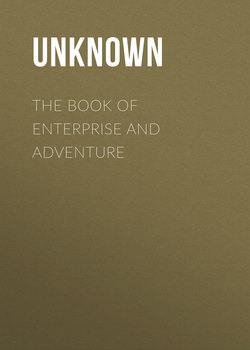Читать книгу The Book of Enterprise and Adventure - Unknown - Страница 8
На сайте Литреса книга снята с продажи.
Indian Field Sports
SAGACITY OF THE ELEPHANT
ОглавлениеAn elephant belonging to Mr. Boddam, of the Bengal Civil Service, at Gyah, used every day to pass over a small bridge leading from his master's house into the town of Gyah. He one day refused to go over it, and it was with great difficulty, by goring him most cruelly with the Hunkuss [iron instrument], that the Mahout [driver] could get him to venture on the bridge, the strength of which he first tried with his trunk, shewing clearly that he suspected that it was not sufficiently strong. At last he went on, and before he could get over, the bridge gave way, and they were precipitated into the ditch, which killed the driver, and considerably injured the elephant. It is reasonable to suppose that the elephant must have perceived its feeble state when he last passed over it. It is a well known fact, that elephants will seldom or ever go over strange bridges, without first trying with their trunks if they be sufficiently strong to bear their weight,–nor will they ever go into a boat without doing the same.
I had a remarkably quiet and docile elephant, which one day came home loaded with branches of trees for provender, followed by a number of villagers, calling for mercy (their usual cry when ill used); complaining that the Mahout had stolen a kid from them, and that it was then on the elephant, under the branches of the trees. The Mahout took an opportunity of decamping into the village and hiding himself. I ordered the elephant to be unloaded, and was surprised to see that he would not allow any person to come near to him, when at all other times he was perfectly tractable and obedient. Combining all the circumstances, I was convinced that the Mahout was guilty, and to get rid of the noise, I recompensed the people for the loss of their kid. As soon as they were gone away, the elephant allowed himself to be unloaded, and the kid was found under the branches, as described by the people. I learnt from my Sarcar, that similar complaints had been made to him before, and that the rascal of a Mahout made it a practice to ride the elephant into the midst of a herd of goats, and had taught him to pick up any of the young ones he directed; he had also accustomed him to steal their pumpions and other vegetables, that grew against the inside of their fences like French beans, which could only be reached by an elephant. He was the best Mahout I ever knew, and so great a rogue that I was obliged to discharge him.
The very day that he left my service, the elephant's eyes were closed, which he did not open again in less than a fortnight, when it was discovered that he was blind. Two small eschars, one in each eye, were visible, which indicated pretty strongly that he had been made blind by some sharp instrument, most probably by a heated needle. The suspicion was very strong against the former keeper, of whom I never heard anything after. The elephant I frequently rode on, shooting, for many years after this, through heavy covers, intersected with ravines, rivers, and over hollow and uneven ground, and he scarcely ever made a false step with me, and never once tumbled. He used to touch the ground with his trunk on every spot where his feet were to be placed, and in so light and quick a manner as scarcely to be perceived. The Mahout would often make him remove large stones, lumps of earth, or timber, out of his way, frequently climb up and down banks that no horse could get over. He would also occasionally break off branches of trees that were in the way of the Howdah, to enable me to pass.
Although perfectly blind, he was considered one of the best sporting elephants of his small size in the country, and he travelled at a tolerably good rate, and was remarkably easy in his paces.
